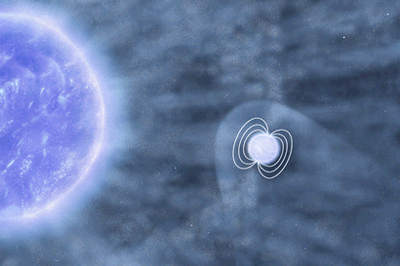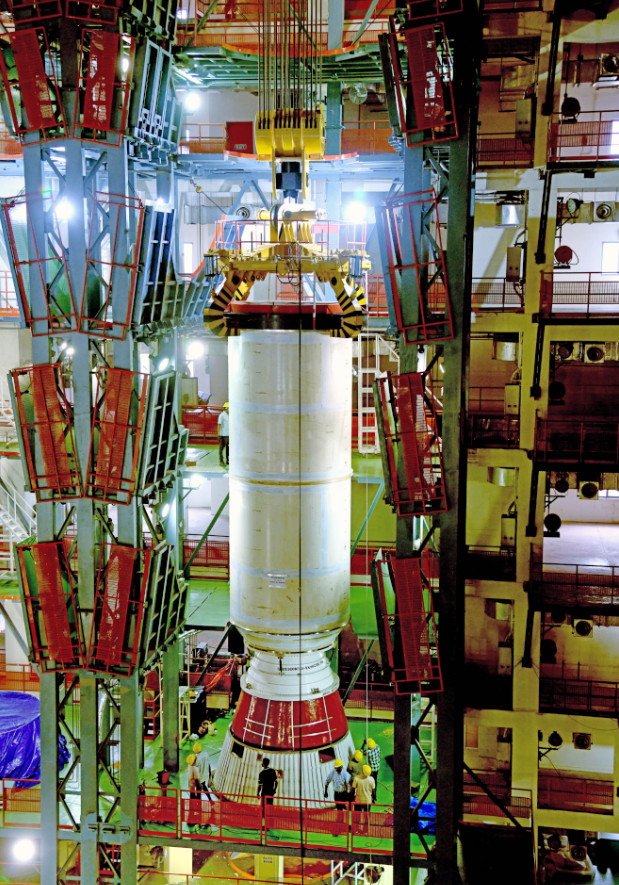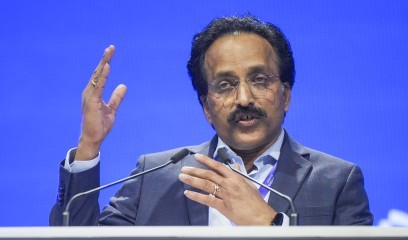
The animated sequence of images illustrates the partial ingestion of the clump of matter by the neutron star. An ESA photo
PARIS (BNS): A neutron star trying to devour a huge chunk of matter thrown away by an enormous supergiant companion star has been caught by European XMM-Newton space observatory.
The celestial phenomenon resulted in a flare that lasted for four hours. The space telescope caught the faint star flare during a scheduled 12.5-hour observation of the system.
The flare took place on a neutron star, the collapsed heart of a once much larger star. Now about 10 km in diameter, the neutron star is so dense that it generates a strong gravitational field.
The clump of matter from the nearby supergiant star was much larger than the neutron star. From the duration of the flare, the researchers estimate it to be probably 16 million km across, or about 100 billion times the volume of the Moon.
Yet, according to the estimate made from the flare’s brightness, the clump contained only one-thousandth of Moon’s mass.
“This was a huge bullet of gas that the star shot out, and it hit the neutron star allowing us to see it,” said Enrico Bozzo, ISDC Data Centre for Astrophysics, University of Geneva, Switzerland, and team leader of the research.
The X-rays came from the gas in the clump as it was heated to millions of degrees while being pulled into the neutron star’s intense gravity field. In fact, the clump was so big that not much of it hit the neutron star.
If the neutron star had not been in its path, this clump would probably have disappeared into space without trace, the scientists said.
The findings will help astronomers understand the behaviour of blue supergiant stars and the way they emit matter into space.
All stars expel atoms into space, creating a stellar wind. The X-ray flare shows that this particular blue supergiant does it in a clumpy fashion, and the estimated size and mass of the cloud allow constraints to be placed on the process, ESA said.
 Previous Article
Previous Article Next Article
Next Article











The Indian Air Force, in its flight trials evaluation report submitted before the Defence Ministry l..
view articleAn insight into the Medium Multi-Role Combat Aircraft competition...
view articleSky enthusiasts can now spot the International Space Station (ISS) commanded by Indian-American astr..
view article